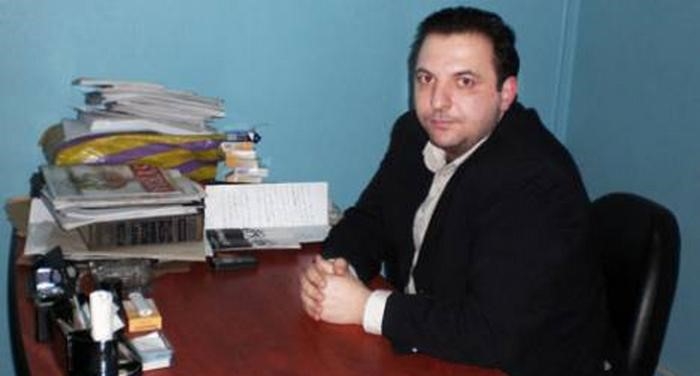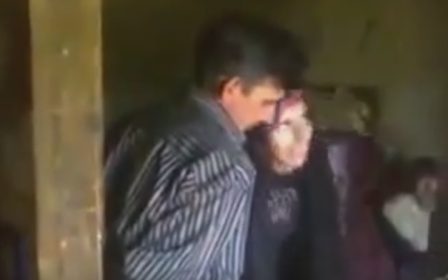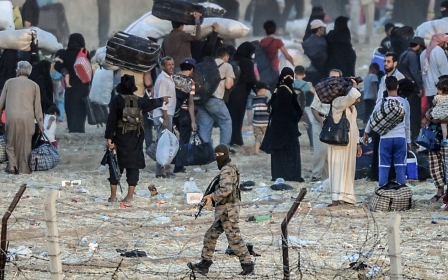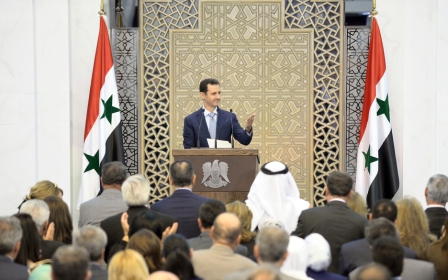Prominent Syria rights defender Mazen Darwish freed

Prominent Syrian rights defender Mazen Darwish has been released after more than three years in prison pending a verdict in his case at the end of this month, his wife said Monday.
"He has been freed ahead of a final verdict in his case on 31 August," Darwish's wife Yara Bader told AFP.
The leading journalist and rights activist was arrested in February 2012 along with two colleagues from his Syrian Centre for Media and Freedom of Expression.
The three were accused of "promoting terrorist acts" and held despite repeated calls from media and rights groups for their release.
They were moved between prisons several times, and court dates in their case were regularly postponed.
Darwish's colleagues Hussein Ghreir and Hani al-Zaitani were released last month in an amnesty announced as a gesture for the Muslim holiday of Eid al-Fitr.
Bader said Darwish, who is in his early 40s, was supposed to benefit from the same amnesty, but his release was delayed.
Both Amnesty International and media watchdog Reporters without Borders welcomed Darwish's release.
"We are relieved that Mazen Darwish is free again and we are now waiting for the court to find him innocent," said the secretary general of Reporters Without Borders, Christophe Deloire.
"Darwish is a leading symbol of resistance to a regime that has constantly suppressed independently reported news and information and covered up human rights violations."
Amnesty International hailed his "long overdue" release and said charges against him and his colleagues should be dropped.
"Mazen Darwish and his colleagues should never have been in jail in the first place," said Said Boumedouha, acting director of Amnesty's Middle East and North Africa Programme.
"The Syrian authorities must drop all charges against Mazen and his colleagues and end their relentless campaign to target anyone who dares to speak out about the appalling human rights violations in the country."
Kamal Labwani, a well-known opposition figure who was imprisoned for years in Syria and now lives in Sweden, said Damascus used Darwish as "a hostage" in order to portray his release as a goodwill gesture.
"A good will gesture for what?" Labwani told the AP news agency. "His right was to be free."
'Grow up in a free Syria'
Darwish has received multiple awards in acknowledgement of his work, including UNESCO's annual press freedom prize in May.
His wife accepted the award on his behalf, saying it was dedicated to his children in the hope they would grow up in a free Syria.
"We need a time to learn how to listen to people who have different opinions," she said. "Mazen has already forgiven those who tortured him almost to death."
Some 200,000 people are held in Syrian government detention centres, prisons and security facilities, according to the Syrian Observatory for Human Rights monitor.
Last year, President Bashar al-Assad signed an amnesty that was supposed to see tens of thousands of political prisoners freed, but rights activists say only several hundred were actually released.
Rights organisations and the United Nations have said torture is practised systematically in Syrian prisons, and photos purportedly taken inside the country's detention facilities have documented appalling abuses.
Syria's conflict began in March 2011 with anti-government protests inspired by similar uprisings elsewhere in the Middle East.
But after a government crackdown, the demonstrations spiralled into a violent conflict that has killed more than 240,000 people.
New MEE newsletter: Jerusalem Dispatch
Sign up to get the latest insights and analysis on Israel-Palestine, alongside Turkey Unpacked and other MEE newsletters
Middle East Eye delivers independent and unrivalled coverage and analysis of the Middle East, North Africa and beyond. To learn more about republishing this content and the associated fees, please fill out this form. More about MEE can be found here.




